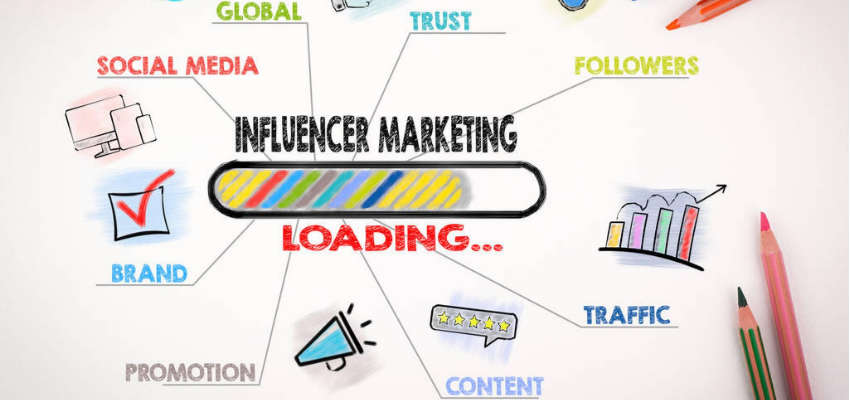Show:
Tips for Businesses on Upgrading Their Marketing Game in Today’s Age
In today’s rapidly evolving digital landscape, staying ahead in the marketing game is crucial for businesses aiming to thrive in a competitive market. The age-old marketing strategies of yesterday might not cut it in the era of digital transformation. This blog explores essential tips for businesses looking to upgrade their marketing game, embrace modern trends, and connect with the ever-evolving consumer base.

Embrace Digital Transformation
Embracing digital transformation is no longer a choice but a necessity for businesses navigating the contemporary marketplace. It entails a comprehensive shift toward leveraging digital technologies to enhance operations and customer interactions. From establishing a robust online presence to ensuring a seamless e-commerce experience, businesses must adapt to the digital landscape. Embracing digital transformation involves not only adopting new technologies but also fostering a culture of innovation and agility within the organization. This shift sets the stage for improved efficiency, increased reach, and a better overall customer experience, positioning businesses to thrive in the dynamic and digitally-driven business environment.
Implement Data-Driven Marketing
Data is the heartbeat of modern marketing. Businesses should understand the critical role data plays and implement data-driven marketing strategies. Implementing data-driven marketing is not just about collecting and analyzing data but ensuring that every aspect of the strategy is aligned with business goals. When working with Be Aligned and other reputable website and brand design agencies, businesses can harness the power of data to create personalized campaigns, target specific demographics, and optimize overall marketing approaches. The keyword here is alignment — aligning data insights with the overarching objectives of the business. By utilizing the expertise of web design and branding professionals, marketers can make informed decisions, refine their targeting, and ensure that their data-driven efforts contribute directly to the success of the business. This alignment ensures a cohesive and purposeful integration of data into the marketing strategy, driving results that are both meaningful and impactful.
Harness the Power of Social Media
Social media has become an integral part of daily life, making it a powerful tool for businesses. Maintaining a strong and engaging social media presence is essential. This involves understanding the nuances of different social media platforms, effectively leveraging them for marketing purposes, and engaging with the audience through compelling content and interactive campaigns.
Invest in Content Marketing
Investing in content marketing is a strategic move that pays dividends in the modern business landscape. Content is the backbone of effective communication with the target audience. By creating valuable, relevant, and engaging content, businesses can establish themselves as authorities in their industry, build trust with consumers, and drive meaningful interactions. A well-crafted content marketing strategy involves producing blog posts, videos, and infographics and understanding the nuances of the target audience’s preferences. With a focus on storytelling and providing solutions, businesses can connect with their audience on a deeper level, fostering brand loyalty. As the digital space continues to evolve, content marketing remains a potent tool for businesses looking to differentiate themselves and leave a lasting impression on their audience.
Explore Influencer Marketing
In today’s saturated digital landscape, exploring influencer marketing has become a strategic imperative for businesses seeking to expand their reach and connect with diverse audiences. Influencers wield significant sway over their followers, and partnering with them provides businesses with a unique avenue to tap into authentic, niche communities. The authenticity of influencers fosters trust, making their recommendations and endorsements powerful marketing tools. By identifying and collaborating with influencers relevant to their industry, businesses can not only enhance brand visibility but also benefit from the influencers’ credibility. Measuring the success of influencer marketing campaigns ensures a data-driven approach, allowing businesses to refine their strategies and maximize the impact of these influential partnerships.

Optimize for Mobile Devices
Optimizing for mobile devices is no longer a choice but a fundamental aspect of modern marketing strategies. With the majority of users accessing information and making purchases through their smartphones and tablets, businesses must ensure that their online presence is seamlessly adapted to various mobile platforms. This optimization encompasses not only responsive web design but also mobile-friendly advertising and app strategies. Creating a cohesive and engaging mobile experience is crucial for capturing the attention of on-the-go consumers and providing them with a positive interaction with the brand. Failure to optimize for mobile devices may result in missed opportunities and a diminished user experience, which can significantly impact a business’s overall success in the digital marketplace.
Leverage Email Marketing Effectively
Leveraging email marketing effectively remains a cornerstone of successful digital strategies. Despite the rise of various communication channels, email continues to offer a direct and personalized way to connect with the audience. Crafting compelling and targeted email campaigns, utilizing automation for timely and relevant communications, and maintaining a strategic approach contribute to the effectiveness of email marketing. With the ability to reach a wide audience and nurture customer relationships, email marketing is a versatile tool for delivering tailored content, promotions, and updates directly to the inbox. By adapting to the evolving preferences of subscribers and incorporating innovative techniques, businesses can continue to harness the power of email marketing as a valuable component of their overall marketing strategy.
Stay Agile and Adaptive
In a dynamic marketing landscape, agility is a key differentiator. Successful businesses stay adaptive, consistently analyzing market trends and consumer behavior. Embracing innovation and emerging technologies ensures that marketing strategies remain fresh, relevant, and aligned with the evolving needs of the target audience.
Prioritize Customer Experience
Customer experience has become a central focus of successful marketing strategies. Businesses should prioritize delivering exceptional customer experiences, focusing on customer feedback and reviews, and building brand loyalty through positive interactions. A satisfied customer is not only a repeat customer but also a brand advocate.
Incorporate Video Marketing
Video content has become a dominant force in consumer engagement. Businesses should incorporate video marketing into their strategies, creating engaging and shareable content. Utilizing live streaming, storytelling, and other video formats enhances the overall impact of video marketing campaigns.
Measure and Analyze Results
Successful marketing is not just about implementation; it’s about continuous improvement. Businesses must measure and analyze marketing results using key performance indicators (KPIs). This iterative process allows for data-driven improvements, ensuring that strategies remain effective and aligned with business objectives.
In conclusion, upgrading the marketing game in today’s age involves a holistic approach that embraces digital transformation, data-driven strategies, and a commitment to customer experience. By staying agile, and adaptive, and incorporating the latest trends such as influencer marketing, businesses can create a robust marketing strategy that resonates with their audience. The continuous evolution of marketing in today’s age requires businesses to be not just reactive but proactive, consistently innovating and refining their approach to meet the ever-changing demands of the modern consumer.

 Return to Previous Page
Return to Previous Page








